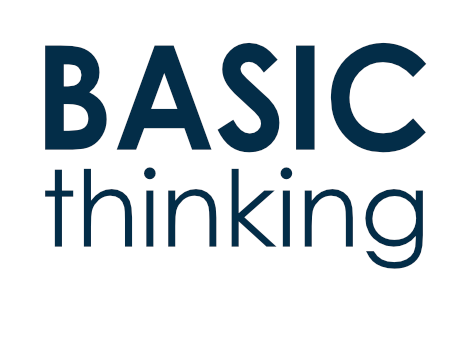Guy Kawasaki (VCler) hat eine amüsante Liste der Top 10 Unternehmerlügen bei sog. Pitches vorgestellt (Vorsprache bei Investoren/Business Angels…):
I get pitched dozens of times every year, and every pitch contains at least three or four of these lies. I provide them not because I believe I can increase the level of honesty of entrepreneurs as much as to help entrepreneurs come up with new lies. At least new lies indicate a modicum of creativity! [ich schmeiss mich gleich wech…]
1. „Our projections are conservative.„? An entrepreneur’s projections are never conservative. If they were, they would be $0. I have never seen an entrepreneur achieve even her most conservative projections. Generally, an entrepreneur has no idea what sales will be, so she guesses: „Too little will make my deal uninteresting; too big, and I’ll look hallucinogenic.“? The result is that everyone’s projections are $50 million in year four. As a rule of thumb, when I see a projection, I add one year to delivery time and multiply by .1.
2. „(Big name research firm) says our market will be $50 billion in 2010.„? Every entrepreneur has a few slides about how the market potential for his segment is tens of billions. It doesn’t matter if the product is bar mitzah planning software or 802.11 chip sets. Venture capitalists don’t believe this type of forecast because it’s the fifth one of this magnitude that they’ve heard that day. Entrepreneurs would do themselves a favor by simply removing any reference to market size estimates from consulting firms.
3. „(Big name company) is going to sign our purchase order next week.„? This is the „I heard I have to show traction at a conference“? lie of entrepreneurs. The funny thing is that next week, the purchase order still isn’t signed. Nor the week after. The decision maker gets laid off, the CEO gets fired, there’s a natural disaster, whatever. The only way to play this card if AFTER the purchase order is signed because no investor whose money you’d want will fall for this one.
4. „Key employees are set to join us as soon as we get funded.“? More often than not when a venture capitalist calls these key employees who are VPs are Microsoft, Oracle, and Sun, he gets the following response, „Who said that? I recall meeting him at a Churchill Club meeting, but I certainly didn’t say I would leave my cush $250,000/year job at Adobe to join his startup.“? If it’s true that key employees are ready to rock and roll, have them call the venture capitalist after the meeting and testify to this effect.
5. „No one is doing what we’re doing.„? This is a bummer of a lie because there are only two logical conclusions. First, no one else is doing this because there is no market for it. Second, the entrepreneur is so clueless that he can’t even use Google to figure out he has competition. Suffice it to say that the lack of a market and cluelessness is not conducive to securing an investment. As a rule of thumb, if you have a good idea, five companies are going the same thing. If you have a great idea, fifteen companies are doing the same thing.
6. „No one can do what we’re doing.“? If there’s anything worse than the lack of a market and cluelessness, it’s arrogance. No one else can do this until the first company does it, and ten others spring up in the next ninety days. Let’s see, no one else ran a sub four-minute mile after Roger Bannister. (It took only a month before John Landy did). The world is a big place. There are lots of smart people in it. Entrepreneurs are kidding themselves if they think they have any kind of monopoly on knowledge. And, sure as I’m a Macintosh user, on the same day that an entrepreneur tells this lie, the venture capitalist will have met with another company that’s doing the same thing.
7. „Hurry because several other venture capital firms are interested.“? The good news: There are maybe one hundred entrepreneurs in the world who can make this claim. The bad news: The fact that you are reading a blog about venture capital means you’re not one of them. As my mother used to say, „Never play Russian roulette with an Uzi.“? For the absolute cream of the crop, there is competition for a deal, and an entrepreneur can scare other investors to make a decision. For the rest of us, don’t think one can create a sense of scarcity when it’s not true. Re-read the previous blog about the lies of venture capitalists, to learn how entrepreneurs are hearing „maybe“? when venture capitalists are saying „no.“?
8. „Oracle is too big/dumb/slow to be a threat.“? Larry Ellison has his own jet. He can keep the San Jose Airport open for his late night landings. His boat is so big that it can barely get under the Golden Gate Bridge. Meanwhile, entrepreneurs are flying on Southwest out of Oakland and stealing the free peanuts [ich liege am Podennnn]. There’s a reason why Larry is where he is, and entrepreneurs are where they are, and it’s not that he’s big, dumb, and slow. Competing with Oracle, Microsoft, and other large companies is a very difficult task. Entrepreneurs who utter this lie look at best naive. You think it’s bravado, but venture capitalists think it’s stupidity.
9. „We have a proven management team.“? Says who? Because the founder worked at Morgan Stanley for a summer? Or McKinsey for two years? Or he made sure that John Sculley’s Macintosh could power on? Truly „proven“? in a venture capitalist’s eyes is founder of a company that returned billions to its investors. But if the entrepreneur were that proven, that he (a) probably wouldn’t have to ask for money; (b) wouldn’t be claiming that he’s proven. (Do you think Wayne Gretzky went around saying, „I am a good hockey player“??) A better strategy is for the entrepreneur to state that (a) she has relevant industry experience; (b) she is going to do whatever it takes to succeed; (c) she is going to surround herself with directors and advisors who are proven; and (d) she’ll step aside whenever it becomes necessary. This is good enough for a venture capitalist that believes in what the entrepreneur is doing.
10. „Patents make our product defensible.„? The optimal number of times to use the P word in a presentation is one. Just once, say, „We have filed patents for what we are doing.“? Done. The second time you say it, venture capitalists begin to suspect that you are depending too much on patents for defensibility. The third time you say it, you are holding a sign above your head that says, „I am clueless.“? Sure, you should patent what you’re doing–if for no other reason than to say it once in your presentation. But at the end of the patents are mostly good for impressing your parents. You won’t have the time or money to sue anyone with a pocket deep enough to be worth suing.
11. „All we have to do is get 1% of the market.“? (Here’s a bonus since I still have battery power.) This lie is the flip side of „the market will be $50 billion.“? There are two problems with this lie. First, no venture capitalist is interested in a company that is looking to get 1% or so of a market. Frankly, we want our companies to face the wrath of the anti-trust division of the Department of Justice. Second, it’s also not that easy to get 1% of any market, so you look silly pretending that it is. Generally, it’s much better for entrepreneurs to show a realistic appreciation of the difficulty of building a successful company.
Und darauf aufbauend hat 37Signals (ja, die…) ihre eigene Top 10 Liste erstellt, nicht minder köstlich, eher besser!











